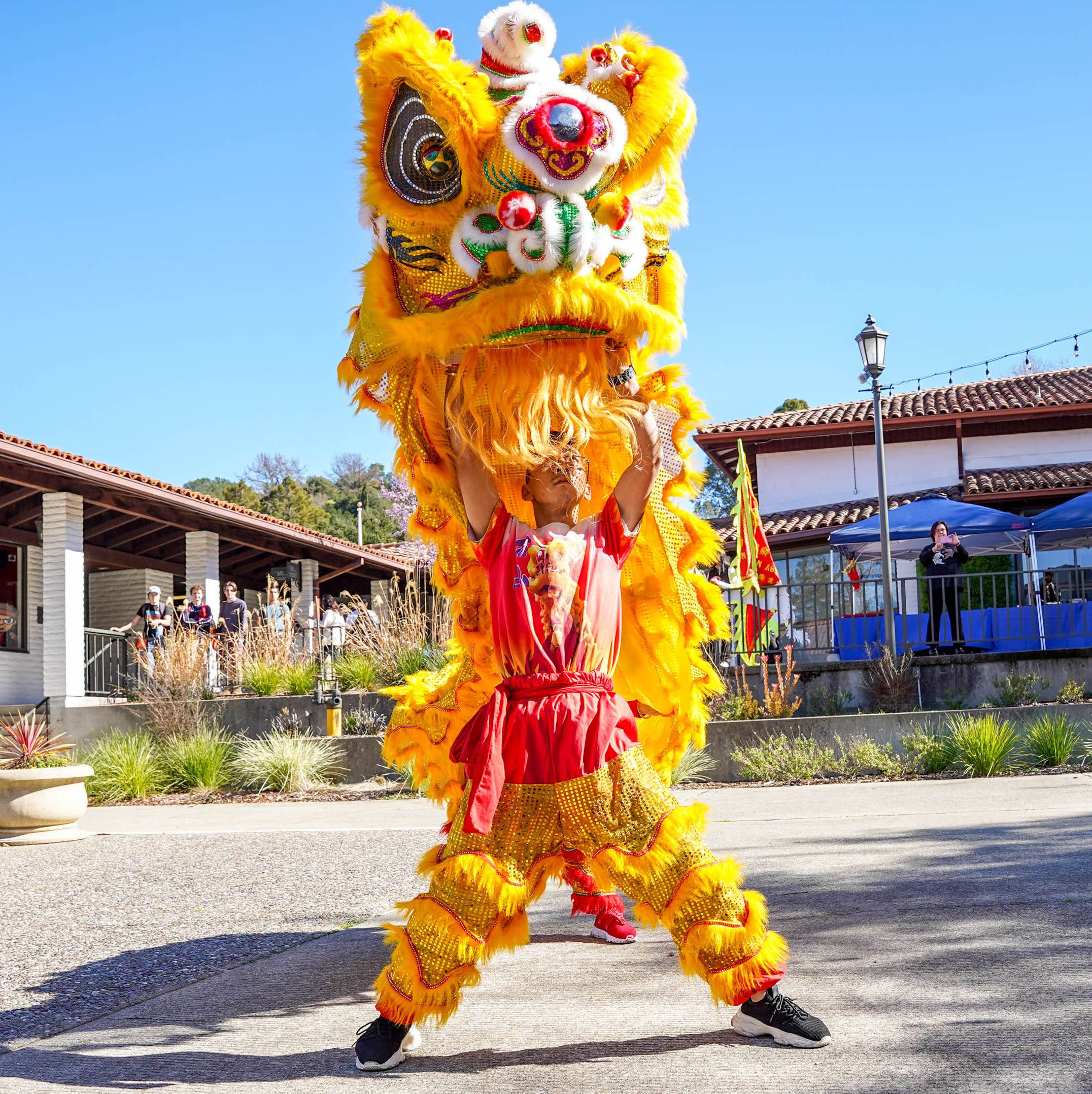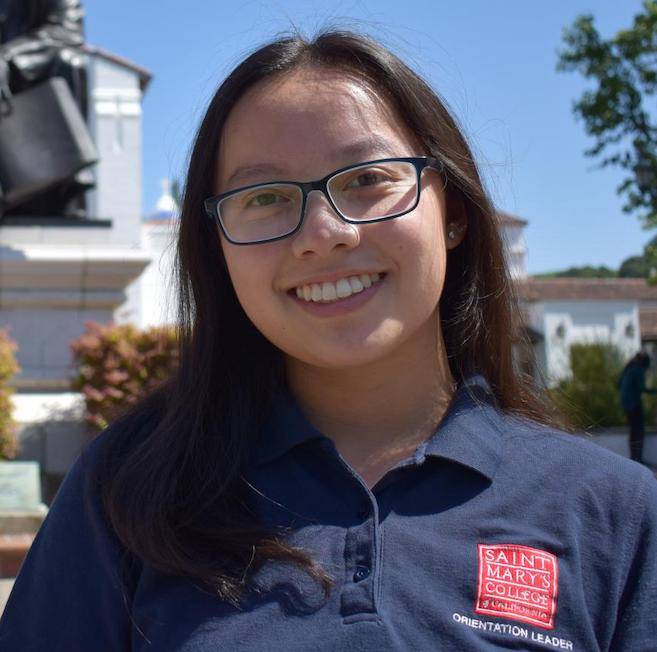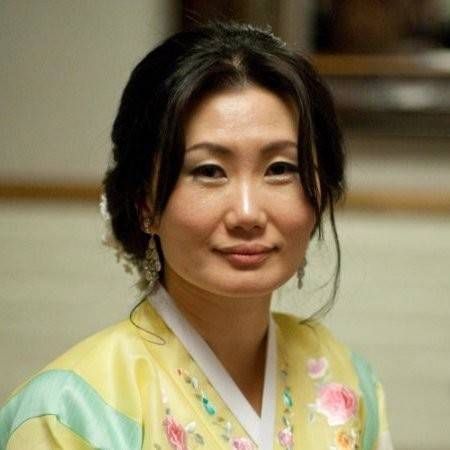
From the Archives: Gaels Reflect on Lunar New Year
In honor of Lunar New Year, Gaels past and present share what the annual celebration has meant to them. An encore presentation of a 2019 story.
For the millions who began celebrating the Lunar New Year on January 22, the Tiger has handed off the baton to the Rabbit—or, for those of Vietnamese heritage, to the Cat.
The Rabbit symbolizes calm, gentleness, and self-reflection. And the Cat is supposed to bring good fortune and smooth sailing. Many kicked off weeks of celebration with the centuries-old tradition of fireworks, setting off dazzling displays—from San Francisco's Chinatown to city centres throughout the world. Whether at festivals or restaurants or tables at home, families and friends around the world gathered for special meals.
And yet, for so many, what should be a time of joy is one of sadness, following news of a mass shooting at a Lunar New Year celebration in Monterey Park, California. The act of violence is at odds with the essence of Lunar New Year and our College's fundamental values. As Saint Mary's President Richard Plumb recently wrote in a message to the campus, the event "strikes at the heart of all that we value as an institution, including decency, acceptance, and respect for all people."
In honor of the Lunar New Year, and what this celebration should symbolize, we revisit a 2019 story. Hear from members of the Gael community—from Chinese, Vietnamese, Korean, and other East Asian backgrounds, as well as a scholar of East Asian history—as they share their Lunar New Year experiences and traditions. They are alumni as well as current and former faculty and staff.
Saint Mary’s Lunar New Year Festival: February 23, 2023
For those on campus and in the Bay Area: Mark your calendars! On Thursday, February 23, from noon until 2 p.m., Saint Mary’s will host the campus-wide Lunar New Year Festival. Co-hosted by our Asian Pacific Islander Resource Group, Student Involvement and Leadership, and other campus partners, the event is sure to be celebratory—and meaningful.
Father Hai Ho '03, OFMCap

My fondest childhood memories of Tết (Vietnamese Lunar New Year) included red envelopes filled with lì xì (lucky money) and performing with the lion dance team at our parish. As the years have passed, much more than the firecrackers and bánh chưng (pork rice cakes steamed in banana leaves), I have come to appreciate the importance of family during Tết. The sights, sounds, and smells of the Lunar New Year revolve around a deep appreciation for the elders who are wise witnesses of our rich traditions. These days and weeks of celebration also offer much hope for the younger generation as we celebrate the gift of life and boundless possibilities for the future. And, as a people of faith, the young and old in my family gather to give thanks to a gracious God who has blessed us with another year to love, serve, and be present to one another.
Aurora Le '19

Lunar New Year is the holiday I look forward to the most every year. It’s a great reminder for my family and I to get together, to recognize and celebrate our Vietnamese heritage. It's a tradition for my family and I to gather at my grandmother's house, where we'll eat a traditional Vietnamese meal and share our hopes for each other for the New Year.
E. Elena Songster, Assistant Professor of History

Although I did not grow up celebrating the Lunar New Year, it has become integrated in my life through my study of Chinese History and the many years I have spent living, working, and studying in Asia. Every year, I give my kids red envelopes. I used to only put chocolate coins in them, which thrilled the kids for a while, but as they got older, they informed me that it was time to put real money in the red envelopes. Our family also sends out New Year’s cards instead of Christmas cards. Because I teach Chinese and Asian history, I also like to celebrate the holiday with my students by giving them red envelopes (containing gems of wisdom instead of money), teaching them about the lunar calendar, New Year traditions (which vary within China as well as across Asia), and by decorating my office door.
Xiao Guan '18

I think the most important thing about Lunar New Year is the family reunion. So, Lunar New Year always makes me homesick. Normally, when I was in China, I made dumplings and had dinner together with my big family. Making dumplings is a cultural tradition, and every family does it. My grandparents and all uncles and aunties give the younger generations a red envelope, which has money in it for good luck in the New Year. Since I am in the United States and can’t go back this year, I will celebrate it with my Chinese friends. We’ll make dumplings together.
Emily Cai '21

Lunar New Year is a very important holiday to me because it is a time of celebration of new beginnings and prosperity for the upcoming year. My favorite memories of Lunar New Year are family gatherings, where we eat things like dumplings (餃子), which resemble ancient gold ingots, in hopes of bringing fortune in the New Year; glutinous rice dumplings (湯圓), which symbolize unity among the family; and glutinous rice cake (年糕), which is a homonym for 年高 (nian gao), which literally means "year high," symbolizing progress and growth. The tradition of giving and receiving red envelopes is another aspect of the New Year celebration that I love. Not only do I receive monetary gifts, but I also learn about the importance of appreciating the gesture of giving. New Lunar Year gives us a chance to start afresh and reconnect with our family and friends through bright festivities, such as fireworks and lion dancing, and good comfort food.
Hwa Seong Oh, MA '05 & '16, Student Engagement & Academic Success Coach

My family celebrates Lunar New Year’s Day (called seollal in Korean), with many relatives. Together, we honor our ancestors with a memorial service, called charye. So, in my memories, Lunar New Year was always filled with many people and abundant food. Historically for Koreans, Lunar New Year’s Day has great significance. From 1910 to 1945, Japan occupied Korea. The Japanese government oppressed our language, culture, and customs, and celebrating Lunar New Year’s Day was an act of resistance for Korean people. I cannot go home this Lunar New Year’s Day, as all Koreans want to do, but I will proudly celebrate it with the traditional rice cake soup, tteokguk. It is a reminder of where I came from and who I am, and it helps me to reflect on who I want to become.